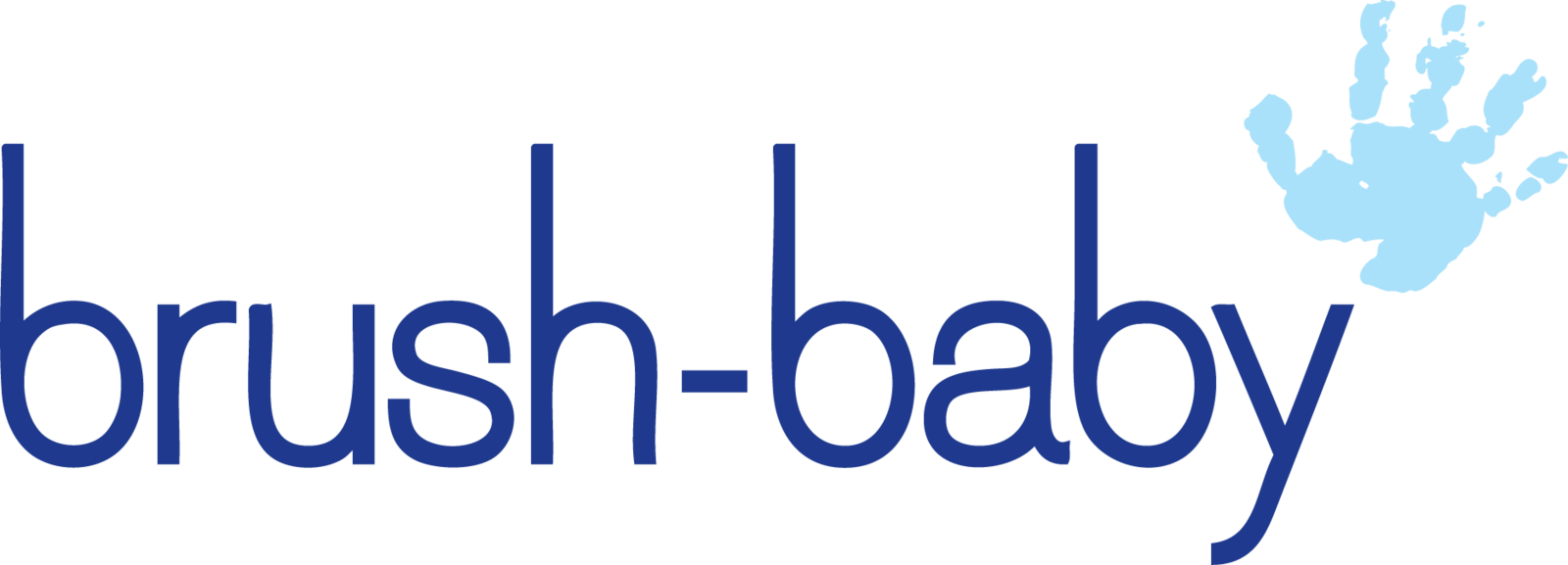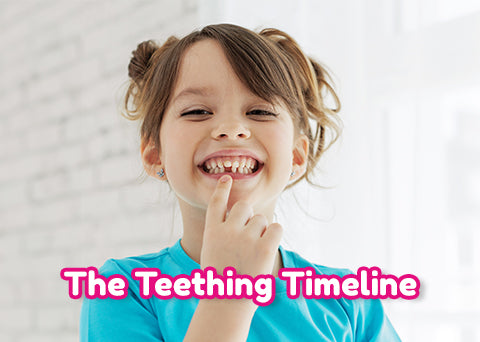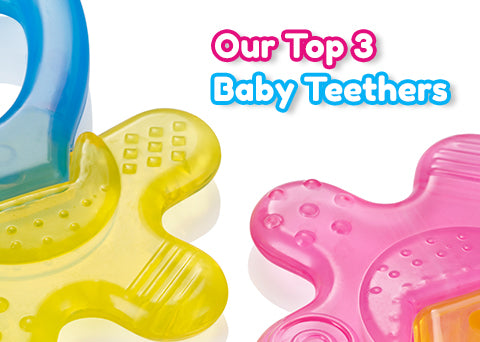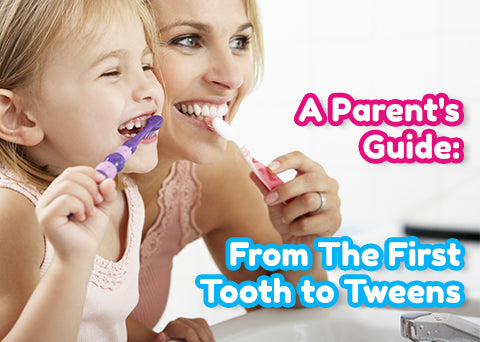Dummy Dilemma - What Can I Do? From The Best Baby Toothbrush Company

As soon as your baby moves into the toddler stage dummies may negatively impact your child’s teeth, with implications for speech and language development. What’s more, the longer your little one uses a dummy, the chances are their developing mouth structure will be affected too.
Figuring out how best to manage a dummy dilemma is not an easy fix.
Here are a few tips to help you ditch the dummy for good:
1. Reduce dummy use
Whatever stage you are at with your child weaning a child off a dummy,can be an emotional ride for both of you. However, it is necessary.
Although there’s no hard and fast rule for when you stop using a dummy, The Lullaby Trust recommend reducing or stopping dummy use between 6 and 12 months. It’s claimed that as a result, the risk of ear infections and SIDS is significantly reduced.
Once you hit the 9-month mark, dummies can become an emotional attachment for your child. Letting go of their dummy now is likely to throw up a lot of protests and grizzly nights. Be patient though, the payoff is worth it.
If your little one is still using their dummy beyond two years old, you can start planting the ‘weaning off’ seed with token phrases like “the dummy fairy is coming soon” or “what will the dummy fairy bring you when she sees your dummy under your pillow?”
Although dummies can help relieve stress for your little one the reality is that they are better off without it for their long-term health and wellbeing.
2. Have a strategy!
Now that you’ve addressed ‘the elephant in the room’, you need to embrace a strategy to ditch the dummy for good! Although there’s no simple fix, your patience and perseverance will pay dividends. Here’s what to do:
- Encourage replacement toys instead of the dummy such as a teddy, comforter or a textured scarf. When you are getting their dummy, ask your little one to hold on to their favourite stuffed toy to get them used to the experience and forthcoming change.
- Once they are asleep, remove their dummy
- If your child wakes in the night, try and comfort them back to sleep without the dummy
- Praise your little one for not using their dummy for a part of the day - you could even go a step further and make an eye-catching reward sticker chart as an extra incentive
- Limit dummy use during stressful times - stick with it!
- Work ‘dummy free’ times into your day. Start small. Use intervals of time when they can’t have their dummy at all - you can set a timer so they can hear and understand the timeframe for themselves
- Tell them a story! All children love a good story, so invest in some dummy-related literature to help your case. Check out Bea Gives up Her Dummy by Jenny Album for extra inspiration
- Aim for a final dummy day - using a big event like a birthday will give your little one enough time to pluck up the courage to let their dummy go for good. Once the date is set, let your child mark off each day on a calendar, so they know what’s coming!
Whatever method works for you, never say you are giving your little one’s dummy to another baby! This could spark jealousy in your child rather than the desired effect you were aiming for!
Let’s pause and think about their teeth! Dummies don’t harm your child’s teeth. But they do encourage an open bite, which is when teeth move to accommodate the dummy instead of their teeth. This can have a negative impact on your little one’s speech development, and as a result could cause confidence problems later down the line.
As an extra precaution, try to discourage your little one from talking or making sounds while they have a dummy in their mouth.
Keeping your tot’s dummy clean and germ-free is essential for their oral hygiene. So if their dummy lands on the floor or is dipped in jam or sugar, make sure you sterilise it well before returning it to them.
3. Be prepared for it to take time
Have you ever seen a grown-up walking around with a dummy in their mouth? Or a teen strolling through the park? No!
Breaking any habit takes time. But rest assured, however long it takes you and your little one to ditch the dummy, it’s only momentary. So stick to your guns. Remain calm and persevere.
Is it time to ditch the dummy?
With a well thought out weaning strategy in place and sheer patience, you’ll be over your dummy dilemma in no time!
